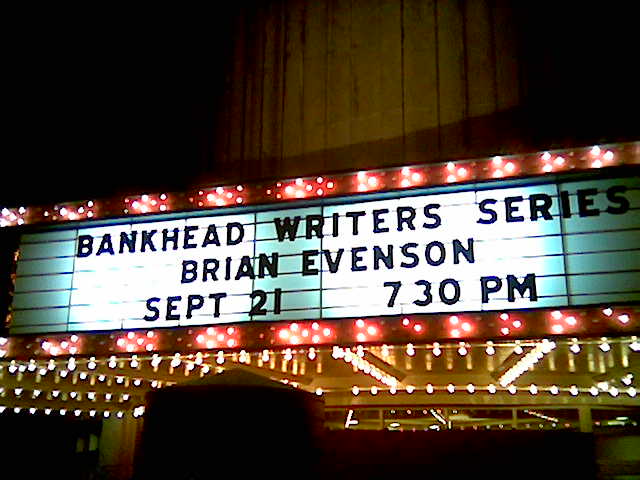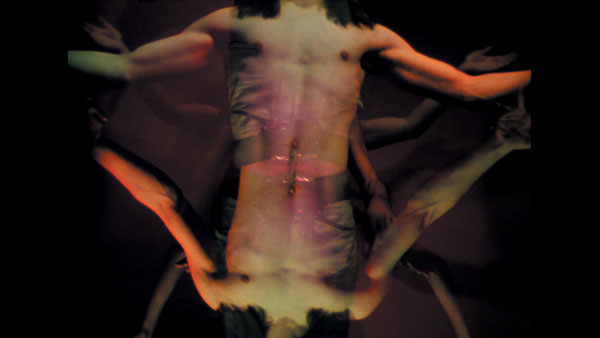Uncategorized
Story by Story: Brian Evenson’s Fugue State (14) ‘Helpful’

Fourteenth in the order of stories in Brian Evenson’s Fugue State (out now from Coffee House Press) is ‘Helpful,’ which originally appeared in Bombay Gin.
At this point in the collection, we have looped through loops of cold expanse and careful molding, each rendered in Evenson’s clean, calm and deadly sentences, most as blank as any stroke of light in a Kenneth Anger film, any globe of far off light.
Here, having crossed over the threshold of those gone rooms, and entered the center of the void via Evenson’s masterful arrangement of the stories so far, the frame of the lenses, like in Anger’s opus Invocation of My Demon Brother, begins to split.

In the first lines of ‘Helpful,’ a man is subjected to a violent accident that renders him blind. In recuperation, his home rendered black in the nonseeing, he begins to find the architecture of the house changed⎯a change manifested (one would assume) not in the house itself, its fiber (would it?) but in the damaged man himself.
The duality of this splitting, which also leads to fracture in the man’s relationship with his wanting, hopeful wife (the title ‘Helpful’ being a blank, sad reference to her want to assist her broken husband in his state).
The result here is a duality, caused in passive, building conflict⎯the husband being the character we are closer to in narration, still removed; and the wife being the character we, as good, honest people, want to identify with more, as she only wants to help. The result then is a tension caused not by the direct action of a character, clearly wielded by an author in an attempt to bring climax and resolution to a text, but more aptly a gradual summation of an alteration of one’s natural state. The everday spun sideways, and the tension then building itself as we watch it, fumbling, try to right itself.
This quite simple, and yet masterfully laid contrast results in a latent building of energy which, in expectation of its becoming, we can feel the story pulling ahead of itself, much like the rooms in the text’s house have seemed to shift. It is not quite foreshadowing that is going on, but a twisting of what our mind wants us to see⎯the conflict between empathy for a man reduced to an altered, black visioned version of his normal self, and the still preserved artifact of that old life, the wife, which in their friction against one another, teeming, braces one for a great and nasty forthcoming sound.
And yet, Evenson is too wise a creator to allow this already fucked and compelling resolution simply play itself out, or even, as has become common in tension-laden entertainment, to provide a twist, a seam around which the vision can be predictably unpredictably stirred. Instead the anticipation is cut off, jarred to black, much like the narrator’s sudden violence, but laid in such a way that the expected is reversed. The text’s exit, then, is delivered almost as a passive observation, a claim on its face wholly neutral and untoward, which then, by knowing what it knows it knows, eating its knowing, becomes that much more violent, more defined in remaining undefined.
In a way then, Evenson’s foreboding method operates in the way that an astromancer or a spirit board. His suggestion lays the bead inside the forehead that therein is sent to expand, or perhaps contort. The walls of the text room, in their laying in a reader’s mind, again like the blind (awakening) narrator’s home begin to shift their walls, revealing how the walls have always been: far off in positions, and then suddenly so right there.
To read my other reviews of each story in Fugue State, visit my blog.
Tags: brian evenson, fugue state, kenneth anger

Will Shawty Lo diss Brian Evenson for not actually being from Bankhead?
Will Shawty Lo diss Brian Evenson for not actually being from Bankhead?